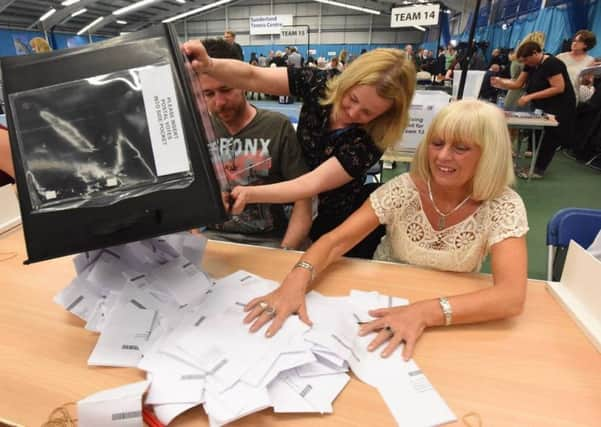YP Letters: There's still no plan for Brexit, so stop this leap in the dark


WOULD all the Leave voters care to advise the Government sub-committee on Brexit how they can square the circle of free trade with the EU without a customs union?
Clearly the Ministers have absolutely no idea. They should have worked that out before the referendum. But no, they invited unbelievers to join them in a leap into the dark.
Advertisement
Hide AdAdvertisement
Hide AdThe EU works very well for the UK. Maybe its not perfect, but neither is Westminster.
Our position in the EU is not broke. It does not need fixing. Stop Brexit now.
From: Terry Morrell, Willerby.
I HAVE just returned from a tour of the Balkans. Starting in Bratislava, through Hungary, Bulgaria and Romania. It wasn’t difficult to witness the poverty, low levels of infrastructure, unemployment and general lack of impetus. One can quickly appreciate the problems the EU will experience when they lose the UK’s financial input. Although we should be empathetic, we must not forget our own needs. After all, we do send considerable amounts of money, services and expertise abroad in foreign aid.
Our Brexit negotiators must not lose sight of this situation when Brussels starts arm-twisting. We should be ready to walk away. No deal is a real option.
Advertisement
Hide AdAdvertisement
Hide AdFrom: Dr David Hill, CEO, World Innovation Foundation, Huddersfield.
BREXIT will never really happen now with Theresa May’s new ‘divide and conquer’ mentality.
The recent decision by Theresa May to split the Cabinet in order to break the so-called Brexit deadlock is what has happened since time immemorial – divide and conquer.
This is the way that we shall, to all intents and purposes, stay in the EU and where history will eventually record that the referendum was just another useless piece of political skulduggery against the people’s will.
From: John Turley, Dronfield Woodhouse.
Advertisement
Hide AdAdvertisement
Hide AdWHEN Theresa May became Prime Minister after the 2016 referendum, she could have sought a pragmatic cross-party approach to Brexit, which reflected the 52:48 voting pattern in the referendum, especially as both the major political parties (supposedly) supported Brexit.
Instead, possibly fearful of being challenged for her job, she chose to pander to the hard Brexiteers in her party, despite the fact that they were in the minority.